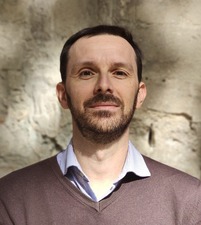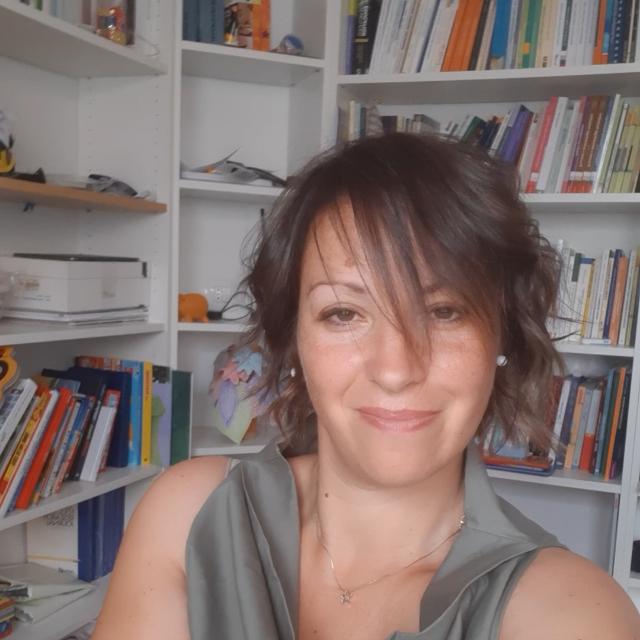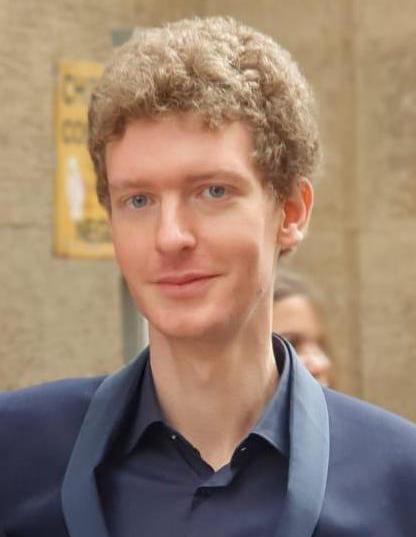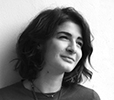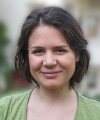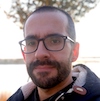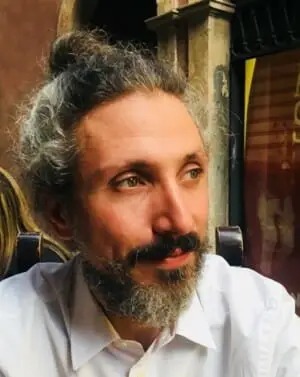Studying at the University of Verona
Here you can find information on the organisational aspects of the Programme, lecture timetables, learning activities and useful contact details for your time at the University, from enrolment to graduation.
Academic calendar
The academic calendar shows the deadlines and scheduled events that are relevant to students, teaching and technical-administrative staff of the University. Public holidays and University closures are also indicated. The academic year normally begins on 1 October each year and ends on 30 September of the following year.
Course calendar
The Academic Calendar sets out the degree programme lecture and exam timetables, as well as the relevant university closure dates..
| Period | From | To |
|---|---|---|
| Sem. 1A | Sep 26, 2022 | Nov 5, 2022 |
| Sem. 1B | Nov 14, 2022 | Dec 23, 2022 |
| Sem. 2A | Feb 13, 2023 | Mar 30, 2023 |
| Sem. 2B | Apr 11, 2023 | May 27, 2023 |
| Session | From | To |
|---|---|---|
| Sessione Invernale | Jan 9, 2023 | Feb 11, 2023 |
| Sessione Estiva | Jun 5, 2023 | Jul 22, 2023 |
| Sessione Autunnale | Aug 28, 2023 | Nov 23, 2023 |
| Sessione straordinaria invernale | Jan 8, 2024 | Feb 17, 2024 |
| Session | From | To |
|---|---|---|
| Sessione Estiva | Jul 10, 2023 | Jul 15, 2023 |
| Sessione Autunnale | Nov 6, 2023 | Nov 11, 2023 |
| Sessione invernale | Apr 2, 2024 | Apr 8, 2024 |
| Period | From | To |
|---|---|---|
| Festa di Ognissanti | Nov 1, 2022 | Nov 1, 2022 |
| Festività Della Immacolata Concezione | Dec 8, 2022 | Dec 8, 2022 |
| Vacanze natalizie | Dec 24, 2022 | Jan 8, 2023 |
| Vacanze di Pasqua | Apr 7, 2023 | Apr 10, 2023 |
| Festa della Liberazione | Apr 25, 2023 | Apr 25, 2023 |
| Festa del lavoro | May 1, 2023 | May 1, 2023 |
| Festa del Santo Patrono | May 21, 2023 | May 21, 2023 |
| Festa della Repubblica | Jun 2, 2023 | Jun 2, 2023 |
| Chiusura estiva | Aug 14, 2023 | Aug 19, 2023 |
Exam calendar
Exam dates and rounds are managed by the relevant Humanistic Studies Teaching and Student Services Unit.
To view all the exam sessions available, please use the Exam dashboard on ESSE3.
If you forgot your login details or have problems logging in, please contact the relevant IT HelpDesk, or check the login details recovery web page.
Should you have any doubts or questions, please check the Enrollment FAQs
Academic staff
 evita.calabrese@univr.it
evita.calabrese@univr.it
 andrea.cavalletti@univr.it
andrea.cavalletti@univr.it
 elena.desilvestri@univr.it
elena.desilvestri@univr.it
 giacomo.mormino@univr.it
giacomo.mormino@univr.it
 sofia.piacentin@univr.it
sofia.piacentin@univr.it
 pieralberto.porcedducilione@univr.it; pierre_pordd@yahoo.it
pieralberto.porcedducilione@univr.it; pierre_pordd@yahoo.it
 045 8028732
045 8028732
 nicola.turrini@univr.it
nicola.turrini@univr.it
 mariarenata.zanchin@univr.it
mariarenata.zanchin@univr.it
Study Plan
The Study Plan includes all modules, teaching and learning activities that each student will need to undertake during their time at the University.
Please select your Study Plan based on your enrollment year.
1° Year
| Modules | Credits | TAF | SSD |
|---|
Further activities2° Year activated in the A.Y. 2023/2024
| Modules | Credits | TAF | SSD |
|---|
2 modules between the following3 modules among the following2 modules between the following3° Year It will be activated in the A.Y. 2024/2025
| Modules | Credits | TAF | SSD |
|---|
3 modules among the following| Modules | Credits | TAF | SSD |
|---|
Further activities| Modules | Credits | TAF | SSD |
|---|
2 modules between the following3 modules among the following2 modules between the following| Modules | Credits | TAF | SSD |
|---|
3 modules among the following| Modules | Credits | TAF | SSD |
|---|
2 modules among the following3 modules among the followingLegend | Type of training activity (TTA)
TAF (Type of Educational Activity) All courses and activities are classified into different types of educational activities, indicated by a letter.
Type D and Type F activities
Una quota dei crediti corrispondenti all’attività formativa dell’intero triennio, determinata dal presente Regolamento in 12 CFU, è riservata alla scelta autonoma da parte della/o studente. Questa scelta può essere orientata sia verso corsi/esami non seguiti/sostenuti in precedenza, sia verso iterazioni di corsi/esami, sia ancora verso altre attività (tutorati, ulteriori competenze linguistiche, partecipazione a convegni o seminari), purché tutte preventivamente approvate dal Collegio Didattico e/o dalla Commissione Didattica del Dipartimento. Tra i 12 crediti dovrà comunque essere presente almeno un esame con voto. In conformità al dettato del D.M. 270/04 e alla luce delle raccomandazioni espresse dal D.M. 26 luglio 2007, capo 3 lettera n), la scelta, che non può essere predeterminata (fatto salvo quanto indicato per le iterazioni), deve comunque essere ispirata a coerenza col piano formativo della/del singola/o studente.
In caso di attività formative non rientranti nelle categorie previste, si dovrà fare richiesta di valutazione al Collegio Didattico di Filosofia fornendo adeguate motivazioni.
Altre informazioni sono reperibili nella Guida per i crediti liberi che è possibile trovare quì
COMPETENZE TRASVERSALI
Scopri i percorsi formativi promossi dal Teaching and learning centre dell'Ateneo, destinati agli studenti iscritti ai corsi di laurea, volti alla promozione delle competenze trasversali:
https://talc.univr.it/it/competenze-trasversali
| years | Modules | TAF | Teacher |
|---|---|---|---|
| 1° 2° 3° | Conflict. Recognize, prevent, manage | D |
Paola Dal Toso
(Coordinator)
|
| 1° 2° 3° | EXPOSED BODIES - Diotima seminar | D |
Rosanna Cima
(Coordinator)
|
| 1° 2° 3° | The Talks of EThoS Research Centre | D |
Carlo Chiurco
(Coordinator)
|
| 1° 2° 3° | III Reading seminar of classical texts | D |
Alessandro Stavru
(Coordinator)
|
| 1° 2° 3° | X National Conference of the Italian Society of Applied Anthropology (SIAA) “Rethinking Sustainability through Applied Anthropology” | D |
Stefania Pontrandolfo
(Coordinator)
|
| years | Modules | TAF | Teacher |
|---|---|---|---|
| 1° 2° 3° | Conflict. Recognize, prevent, manage | D |
Paola Dal Toso
(Coordinator)
|
| 1° 2° 3° | Business English for everybody | D |
Manuel Boschiero
(Coordinator)
|
| 1° 2° 3° | Russian for everybody | D |
Maria Gabriella Landuzzi
(Coordinator)
|
| 1° 2° 3° | The Talks of EThoS Research Centre | D |
Carlo Chiurco
(Coordinator)
|
| 1° 2° 3° | III Reading seminar of classical texts | D |
Alessandro Stavru
(Coordinator)
|
| 1° 2° 3° | La materia oscura dello sguardo | D |
Gianluca Solla
(Coordinator)
|
| 1° 2° 3° | X National Conference of the Italian Society of Applied Anthropology (SIAA) “Rethinking Sustainability through Applied Anthropology” | D |
Stefania Pontrandolfo
(Coordinator)
|
| years | Modules | TAF | Teacher |
|---|---|---|---|
| 1° 2° 3° | The Talks of EThoS Research Centre | D |
Carlo Chiurco
(Coordinator)
|
| 1° 2° 3° | III Reading seminar of classical texts | D |
Alessandro Stavru
(Coordinator)
|
| 1° 2° 3° | Gnoseology and Metaphysics Workshop | D |
Davide Poggi
(Coordinator)
|
| 1° 2° 3° | OMeGA - Horizons, Models and Assisted Parenting | D |
Alessandra Cordiano
(Coordinator)
|
| 1° 2° 3° | Tai-Ti aiuto io | D |
Alessandra Cordiano
(Coordinator)
|
| 1° 2° 3° | Making the invisible visible. Study day | D |
Giorgio Gosetti
(Coordinator)
|
| years | Modules | TAF | Teacher |
|---|---|---|---|
| 1° 2° 3° | The Talks of EThoS Research Centre | D |
Carlo Chiurco
(Coordinator)
|
| 1° 2° 3° | III Reading seminar of classical texts | D |
Alessandro Stavru
(Coordinator)
|
| 1° 2° 3° | Gnoseology and Metaphysics Workshop | D |
Davide Poggi
(Coordinator)
|
| 1° 2° 3° | OMeGA - Horizons, Models and Assisted Parenting | D |
Alessandra Cordiano
(Coordinator)
|
| 1° 2° 3° | Tai-Ti aiuto io | D |
Alessandra Cordiano
(Coordinator)
|
| 1° 2° 3° | University and DSA: Methods and strategies for studying and studying at university | D |
Ivan Traina
(Coordinator)
|
Philosophical anthropology (2023/2024)
Teaching code
4S00786
Teacher
Coordinator
Credits
6
Language
Italian
Scientific Disciplinary Sector (SSD)
M-FIL/03 - MORAL PHILOSOPHY
Period
Sem. 2B dal Apr 9, 2024 al May 31, 2024.
Courses Single
Authorized
Learning objectives
Philosophical anthropology owes its name to “ánthropos”, ancient Greek for “human being”. Traditionally, it was the branch of philosophy devoted to the study of the difference between what is cultural and what is natural, how the two diverged or converged, or how they shaped subjective and inter-subjective experience. Today, philosophical anthropology is rather an overview on the process that led to the formation of this conceptual landscape, and the exploration of the uncharted territory that its dissolution begins to reveal. The course aims to shed light on some of the main features of this process-cum-exploration that is still under way. At the end of the course, students will acquire an advanced knowledge of present-day philosophical discussions on the (inter)subjective (or not) nature of experience; they will develop a correct hermeneutical approach to the authors and topics examined and discussed during the classes; to independently make assessments on the topics of the course. These abilities will prove useful in order to continue their studies at MA level
Prerequisites and basic notions
There are no prerequisites
Program
Anthropology of Comedy
The course will focus on the phenomenon of comedy, the enigma by which a certain scene, action, subjectivity, is funny, happily incongruous, and triggers our laughter. And it will expose the enigmatic reverse of all this. Namely, that the comic scene has an enigmatic kinship with the horror scene, that comic affection easily slips into horror and anguish. This is also shown by two very different yet related exemplary cases, which will guide our reflections. On the one hand, the strange endiad formed by the two films The Exorcist and The Exorciccio. On the other hand, the ancient myth of Baubo, studied, above all, by Georges Devereux.
Bibliography
Didactic methods
The lessons, in presence, will be mainly frontal but with ample space dedicated to discussions and interactions. The lessons will be videotaped and made available without deadline on Moodle. They will not be streamed.
Learning assessment procedures
Students attending the classes will receive frontal lessons which will address the textes in the form of a comment, an elaboration, an extension of their content. The individual study of the bibliography will be a fundamental part of the preparation of the final exam. Meeting hours for students are scheduled during the whole academic year. Any exception concerning the days and hours of courses and meetings will be communicated though the teacher’s personal webpage. Students who will not attend classes will study the same bibliography.
Evaluation criteria
The oral exam will verify in equal measure the acquired knowledge and the ability to originally elaborate this knowledge.
Criteria for the composition of the final grade
The exam will take into account both the knowledge acquired and the ability to originally elaborate it.
Exam language
italiano
Career prospects
Module/Programme news
News for students
There you will find information, resources and services useful during your time at the University (Student’s exam record, your study plan on ESSE3, Distance Learning courses, university email account, office forms, administrative procedures, etc.). You can log into MyUnivr with your GIA login details: only in this way will you be able to receive notification of all the notices from your teachers and your secretariat via email and soon also via the Univr app.
Student mentoring
Linguistic training CLA
Gestione carriere
Practical information for students
Documents
| Title | Info File |
|---|---|
|
|
pdf, it, 325 KB, 02/05/23 |
|
|
pdf, it, 212 KB, 02/05/23 |
|
|
pdf, it, 131 KB, 02/05/23 |
Graduation
Documents
| Title | Info File |
|---|---|
|
|
pdf, it, 99 KB, 13/10/23 |
|
|
pdf, it, 101 KB, 10/04/24 |

